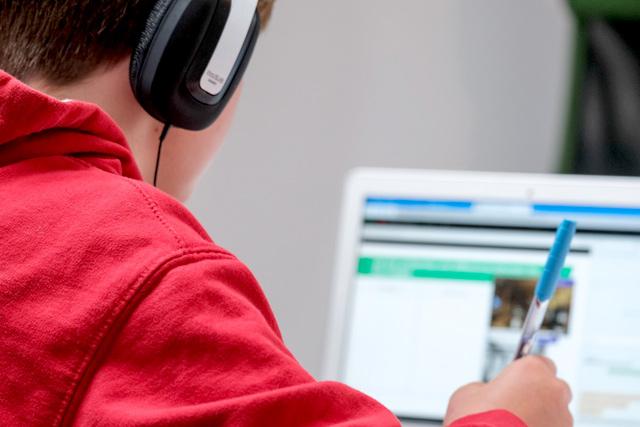You are here
Virus crisis exacerbates negative effects of children’s Internet use
By Maram Kayed - Sep 14,2020 - Last updated at Sep 14,2020
AMMAN — The SecDev Foundation held a month-long awareness campaign regarding the safe use of the Internet by children, based on a survey prepared by the SecDev-funded Digital Safety Programme team in Jordan.
The campaign concluded with an hour-long session recently in which digital safety experts stressed the importance of raising parents’ awareness about the need to monitor their children’s use of the Internet.
The survey sampled 350 parents. Results showed that almost 70 per cent of children in Jordan aged between four and 10 use the Internet up to six hours a day. One of the survey’s findings was that the coronavirus crisis “exacerbated the negative effects of children using the Internet.”
Coordinator of the programme Lina Momani said that this extensive use exposes children to digital violence, which makes it of “vital importance” to educate parents about digital safety.
Although the survey showed that 86.2 per cent of parents believe that their children have not been exposed to digital violence, Momani noted that 57 per cent of parents did not monitor their children’s use of the Internet, which she said is “indicative of the fact that the child could have been exposed to digital violence without their parents’ knowledge.”
Momani said that children are more likely to shy away from informing their parents from abuse, which is why parents need to follow-up on their children’s use of any device that has access to the Internet.
Children who were exposed to digital violence either experienced it in the form of inappropriate text messages and pictures at 7.7 per cent, fake accounts under their name and the use of their personal pictures at 3.2 per cent, or by being subjected to cyber bullying at 2.6 per cent.
Momani noted that distance education imposed by the coronavirus crisis placed technology in the hands of children, but their Internet use includes non-educational outlets too, with their use of YouTube standing at 74.1 per cent, TikTok at 28.1 per cent and electronic games at 29.7 per cent.
Legal expert Haneen Bitar said during the concluding online session that parents must be aware of the legal age required by various social media outlets, as many parents create accounts for their children on platforms that require a certain age limit that their child has not reached.
“The same goes for games and mobile applications that state that they are not appropriate for children,” Bitar added.
The legal expert advised that children below 10 years of age should not use Internet-connected applications.
Ahmed Sheikh, an Assistant Professor of Psychology at the University of Jordan, said that children’s extensive exposure to social media manifests indifference to the real world and addiction to the virtual one.
“Spending long hours on the Internet and expressing oneself through social media has a dangerous effect on the child’s ability to express and communicate his or her feelings face to face, as well as their ability to deal directly with their environment,” Sheikh added.
On the role of legal procedures regarding child protection from cybercrimes, expert Nadine Nimri stated that the Cybercrime Prevention Law stipulates “severe penalties for crimes of sexual exploitation on the Internet”.
Nimri noted that Article 9 of the amended law states that “anyone who sends or publishes content through an information system, information network or website intentionally shall be held accountable for everything that is audible, legible, or visual.”
“This includes punishing the publication of pornographic content or the use of sexual exploitation. The punishment is imprisonment for a period of no less than six months and no more than three years and a fine of no less than JD1,000,” Nimri added.
Article 12 of the amended law also states that “anyone who uses a computer network, website, or information system to blackmail a person or induce him to do so shall be punished with imprisonment for a period of no less than three months and no more than three years and a fine of no less than JD1,000 and no more than JD3,000.
Related Articles
AMMAN — Eighty-two per cent of students who participated in a survey by the Jordanian National Commission for Women (JNCW) said they receive
AMMAN — A recent study by Save the Children Jordan revealed that 15.8 per cent of children aged 10 to 17 have experienced some form of digit
Parents with depression may be more likely to take their children to the doctor than those without mental health problems, a UK study sugges

















